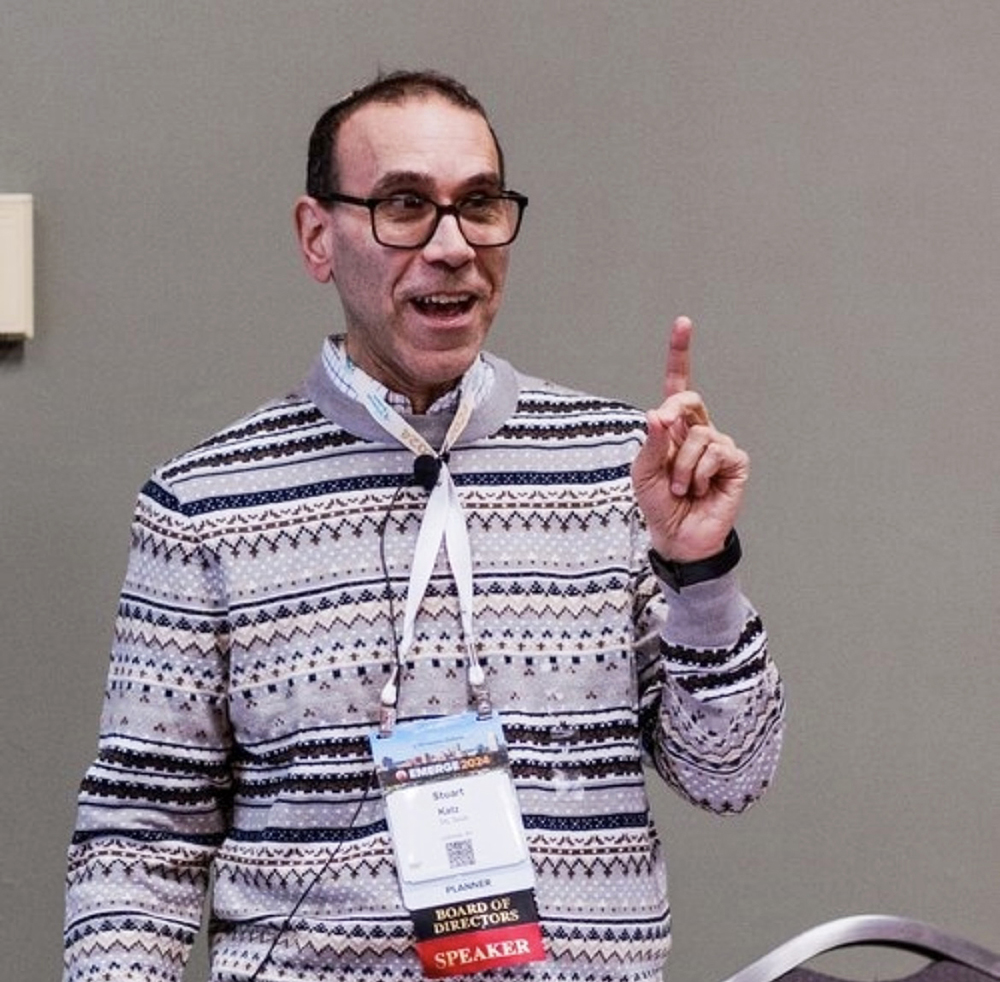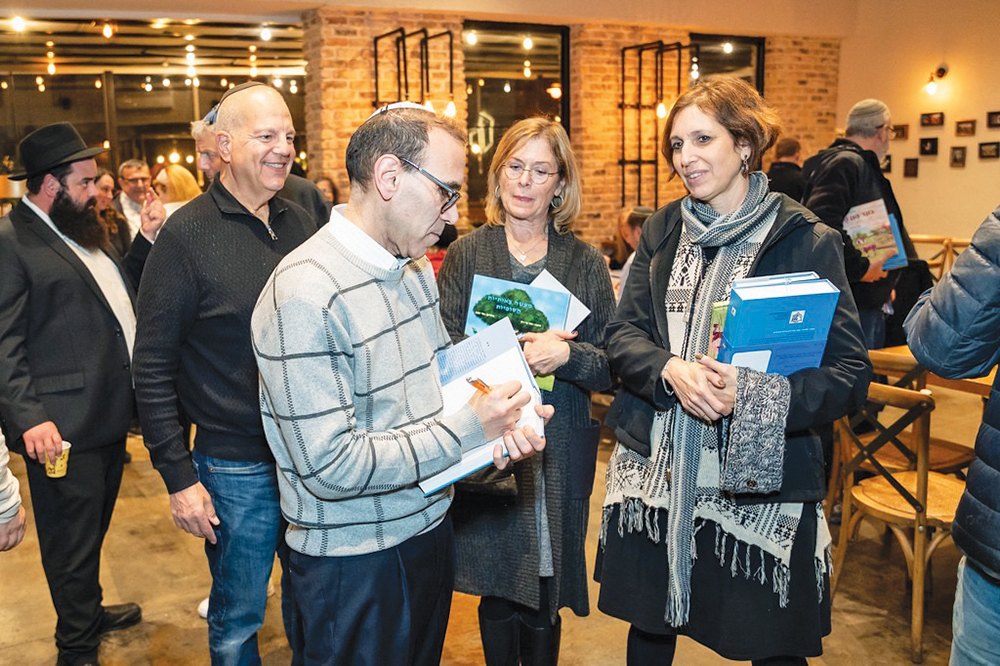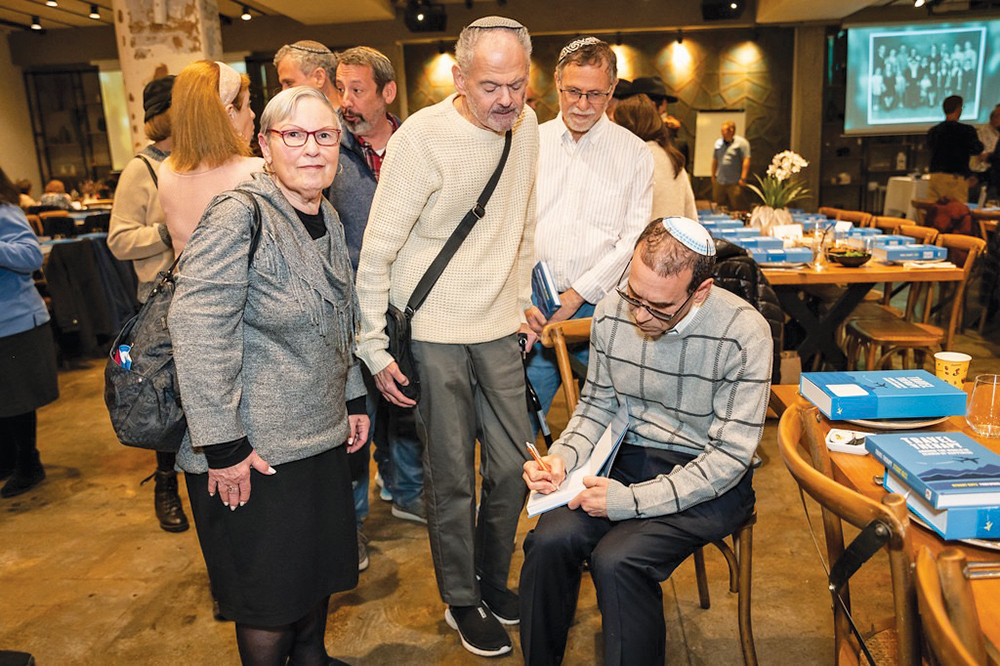
Stuart Katz made aliyah with his wife and youngest daughter in 2010. His youngest was starting eighth grade while his three older kids were out of high school and had made aliyah on their own. “It was in our blood to make aliyah,” he said. “It just took us 25 years to get there.”
Several years after they made aliyah, Katz’s daughter was accepted into the highly competitive Bat-Ami program to volunteer in Houston, Texas for her second year of Sherut Leumi (National Service). To her parents’ surprise, she returned home after around six weeks. She had developed severe depression. A year-and-a-half later, she attempted suicide.
At this time, Katz’s daughter was seeing a psychiatrist. Katz and his wife didn’t know much about mental health issues, but Katz said that he will never forget the psychiatrist’s words to him: “If you want to keep your daughter alive, there’s nothing to help you in Israel.”

They brought their daughter to be treated at McLean Hospital in Boston. Her section of the treatment center had only nine spots, and she was not the only Israeli patient. “I was so angry that there wasn’t anything in Israel to help her. I have been trying to make that change,” Katz said. He explained that in Israel, anything to do with mental health was approached in the Israeli fashion of putting a band-aid on the problem and expecting it to go away.
He started contacting Israeli professionals and organizations connected to mental health. They all claimed to provide sufficient care, but Katz found that this wasn’t the case. For example, the workers of the suicide hotline in Israel only responded when called in the middle of the day. Otherwise, the caller had to leave a message and wait to be called back. Clearly this was a serious problem.
Additionally, the red tape to get proper services was egregious. “You could get an appointment with a psychiatrist in 11 months,” Katz said. “And most of them were afraid of the word ‘suicide.’”
After six months of making calls to talk to professionals about the mental health services to no avail, an organization called Bishvil Hachaim (For the Purpose of Life), which helped families who lost people to suicide, invited Katz to speak at a board meeting. He spoke about his daughter’s story and his frustrations with Israeli society’s inability to help her.

When the meeting was over, many of the board members approached Katz in private. They all shared the same message: He didn’t understand just how dire the situation was. The bottom line, they all said, was that depression and suicide is stigmatized in Israel and therefore not treated properly.
Katz then began his first campaign to bring McLean Hospital’s “Deconstructing Stigma” project to Israel and to create an Israeli version in collaboration with Shaarei Tzedek Hospital, Machon Lev and the Jerusalem College of Technology. The campaign aims to bring the issues to light through exhibits and interviews with people suffering from mental illnesses. Its installations, website and companion books attempt to capture the complexity of living with a psychiatric disorder, seeking treatment, navigating insurance and healthcare systems, and facing stigma. (Visit https://deconstructingstigma.org to learn more.)
“So many of us have some form of mental illness,” said Katz. “No family is immune. I speak constantly in shuls, churches and schools. I’m always bombarded by people who want to tell me their stories afterward. And that’s how I’ve come to see that it’s so very prevalent.”
Katz recently wrote a book, “Travel Therapy: Around the World in Search of Happiness,” which tells about his travels to over 100 countries spreading mental health education and advocacy, as well as his own family’s story. At the book launch events, Katz was again approached by many people—even relatives and friends—who wanted to share the mental health stories that they had previously kept private.
Another project that Katz has been working on is “Mental Health First Aid,” a program that first came out in 2001 in Australia, at the University of Melbourne. He was able to bring the program to Israel in 2021, making Israel the 26th country to adopt it. Mental Health First Aid is a skills-based training course that teaches participants (nonprofessionals) about mental health and substance-use issues. It teaches how to identify, understand and respond to mental health issues.
Katz said that he is currently focused on working on specialized programs for haredi communities in Israel. “Unlike CPR, with mental health, you have to treat people in different ways—the way you approach them, the way you talk to them,” he said. “Mental health is very different from physical health because bleeding in the mind is very different from bleeding in the arm.”

He added that while the haredi communities don’t speak openly about their mental health issues, they do acknowledge them privately and try to get help. The Israeli more Modern Orthodox (Chardal) communities are even less ready to acknowledge mental health issues. They are more prone to thinking that they can endure their problems on their own, without outside assistance.
Katz has organized large conventions for mental health, specifically for the haredi communities in Bnei Brak, Kiryat Sefer, and parts of Jerusalem. He is collaborating on educational initiatives with Shaarei Tzedek Hospital, Machon Lev, and Meanei Yehoshua.
Katz’s projects offer workshops to corporations and businesses as well. “The idea is to get conversation started,” he said, “and thank God there is more talk today.”
When asked about Israel’s new view towards the need for providing support for mental health after October 7, Katz struggled with his answer. “Everyone says it has changed since October 7th. I haven’t seen the change yet. Of course Israel knows that it needs to provide help for the released hostages, and the army is providing debriefing therapy for the soldiers who leave Gaza. But we haven’t seen the mental health toll as a country yet. We are being strong right now, and sucking it up.
“My concern is that a year from now, when people really need it, the country will say, ‘We did this already. We’re done.’ But they don’t understand that trauma can come out at any time: it can come out a year later or many years later. As a country, Israel isn’t prepared for that yet.”
Katz shared that he had happened to be in Israel as a child during the Yom Kippur war. Therefore, on October 7, he felt crushed because it brought that trauma back. “These are the things that we have to be ready for,” he said. “Opening the conversation and deepening the conversation is crucial. I believe we save lives by getting conversations happening.”












